Avoiding the AI Trap: Pitfalls of relying on ChatGPT for PhD applications
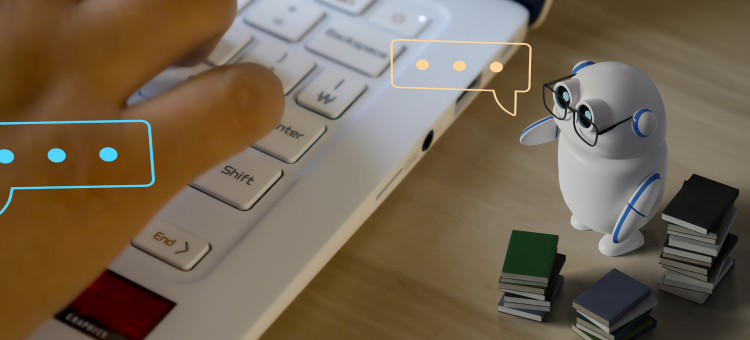
The PhD application process can be both daunting and enjoyable, where one tends to make a lot of mistakes and learn from them. Each institution or laboratory has its own requirements for letters or applications submitted by applicants. While these letters may seem simple, they require expertise and careful crafting to leave an impact on potential advisors. The documents required for a PhD application include the resume or curriculum vitae (CV), cover letter, statement of purpose (SOP), personal statement, motivation letter and the letters of recommendation. Although these letters are a part of the standard applications for approaching a PhD advisor/mentor, each of them follows a unique style of presentation.
The majority of applications are rejected by the committee, due to poor research and drafting. However, with the rising advancements in artificial intelligence (AI), applicants are increasingly resorting to it for crafting their PhD application documents. Although you may draft “seemingly perfect” professional letters or even generate cold emails using AI, you may still get rejected.
The Pitfalls of Using AI-Generated Documents for PhD Application
Although AI makes drafting documents easier, it has some pitfalls. The designed content, though seems to be accurate and submission-worthy, may stand a chance to get rejected due to the following reasons.
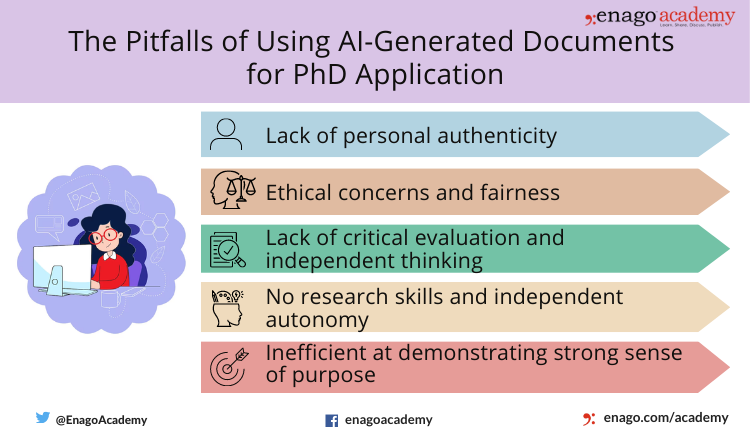
1. Lack of personal authenticity
- AI-generated content can seem unnatural and requires more personalization.
- The content in the document is machine-generated and an output of a trained dataset. Therefore, the generated text may feel less humanized, thereby failing to grab the interest of your advisor.
- The text may be out of context in some places and might appear similar to dozens of other applications received by the institution.
- The generated documents would be incapable of showing your personal insights and perspectives. As a result, it may contradict your perspectives regarding certain topics. This may not give you an edge over other applicants.
- The letter may not emphasize much about your research; thereby failing to highlight the skills which you acquired during the process. This can result in disapproval of your application as there would not be any emphasis on your project and relevant skills, thereby making you appear inexperienced and alien in their area of research.
2. Ethical concerns and fairness
- No institution or PhD supervisor would want to intake a student with poor ethical conduct.
- AI is reportedly being used by some students to create fake letters of reference using pseudo-profiles. Many universities are adopting measures to tackle such malpractices. Due to the rising issues with fraudulent applications, the institutions are becoming more vigilant by resorting to tools that detects such applications.
- Being caught under such circumstances would reflect poorly on your morals and ethics; thus ruining your career before it even begins.
- This can also pose to be a red flag for your PhD selection under other advisors as well.
- Apart from this, the AI-generated text may not follow a proper tone in the language, which could be offensive and disrespectful to some advisors.
3. Lack of critical evaluation and independent thinking
- AI makes more mistakes than it appears.
- Although AI can convincingly write regarding certain topics, they may have a lot of mistakes due to the lack of critical evaluation.
- It gathers data from all possible options and may lack the ability to evaluate and provide a perspective from both sides.
- Most applicants tend to use the AI generated text directly, without checking it. Unfortunately, most of these errors remains unnoticed but gets more obvious on careful evaluation.
4. No research skills and independent autonomy
- Every skill opens the door for a new experience, and showcasing them in a right manner is very important.
- AI-generated documents may not highlight your research skills and techniques which you have mastered during your academic course, training, or other internship programs.
- These documents may fail to provide insights into your experiences and may also not emphasize on your achievements. As a result, your letter or document might fail to mention your invaluable experiences that could grab your advisor’s interest.
5. Inefficient at demonstrating strong sense of purpose
- Purpose is something that you should be responsible for, and not something that is fed to you.
- AI-generated text may lack a sense of purpose for your application and may not emphasize your future aspirations.
- It may not include your objectives and goals of joining the program.
- Also, it may not exhibit your relevant experience in the way it should have and therefore may communicate less effectively regarding the motive of your application.
- This may make an applicant appear less ambitious, with no long-term goals to contribute to the field.
- No advisor would want a student who lacks dedication; and this can result in the rejection of your PhD application.
Example of PhD Application Cover Letter
AI-generated cover letter:
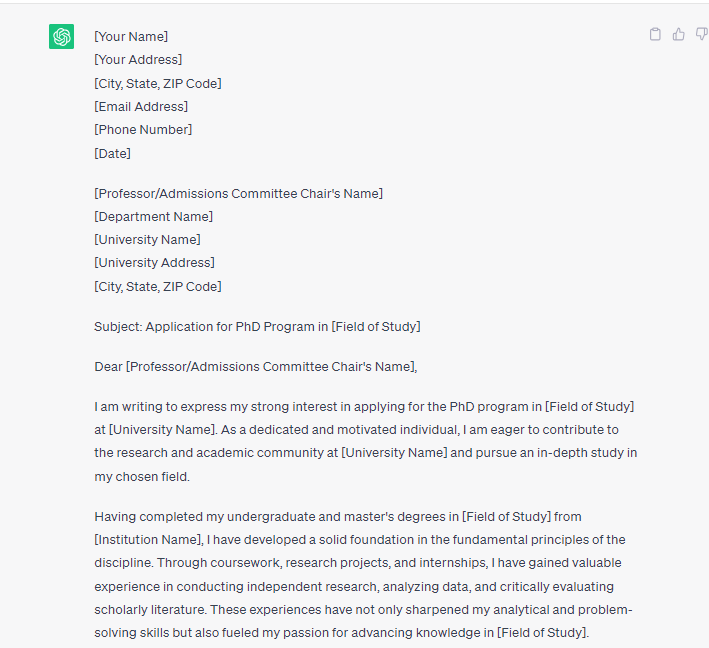
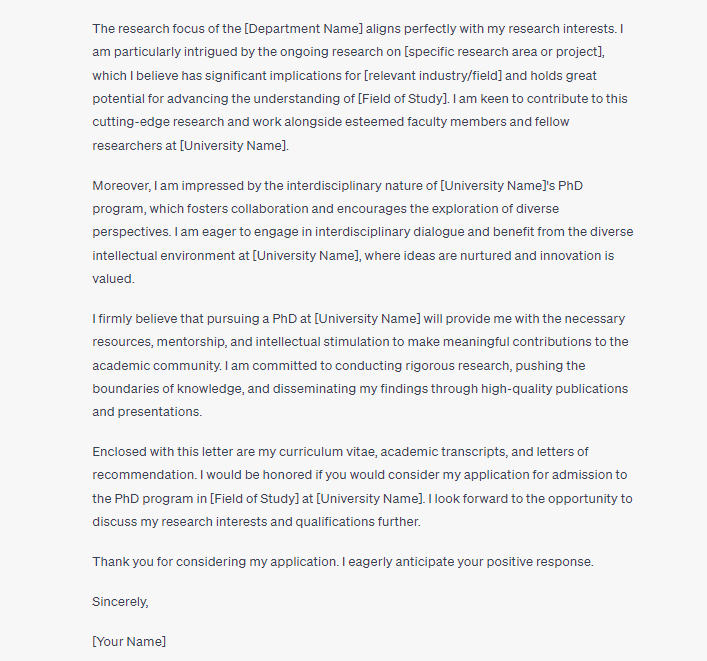
Source: Open AI
Human-written cover letter
Annalise Manson
123, Maple avenue,
Springfield, California
06-15-2023
Dr. Amanda Keating
Assistant professor, Department of cancer biology
Middleton university
456 Oak street
California
Subject: Application for Ph.D. Program in cancer biology
Dear Dr. Keating,
I am an aspiring scientist looking for pursuing my PhD in your laboratory. Being an avid researcher, I follow all the current advancements in research and the work at your laboratory seemed very impressive to me. I, Annalise Manson, am writing this letter to apply for admission to the PhD program in your laboratory at Middleton university. Having completed my Masters in Biochemistry from Peterson University, I was informed about the program by my professor, Dr. Sam Byers. Based on my innate curiosity and a strong commitment towards research, I believe pursuing PhD can give a start to my journey in academia.
During my academic program I have conducted research projects on various domains like molecular biology, cancer biology and bioinformatics. These projects made me realize my passion towards research. My previous experience in research helped me gain skills in PCR, electrophoresis, blotting techniques, microscopy, NGS among others, which can certainly contribute to my academic career.
During my masters, my research on “Differential gene expression in lung cancer” garnered a lot of appreciation and helped me improve my analytical skills. The research dealt with mutation analysis and sequencing of lung cancer cell lines, which is in close alignment to your work on lung cancer. I would be honored to have an opportunity to continue my research in your laboratory and this would surely hold a symbiotic benefit for the laboratory and me. Furthermore, the exceptional faculty and the cutting-edge research facilities of Middleton would provide me ideal setting to pursue my PhD. I am sure it would give a great start to my research career in cancer and I believe I can produce groundbreaking results in the field.
Beyond my academic achievements, I have actively engaged in several activities and clubs. These experiences nurtured my teamwork, communication, and organizational skills.
Attached to this letter, you will find my statement of purpose and letter of recommendation. I am confident that my background aligns with the research at your laboratory; making me a strong candidate for this program. I look forward to speak with you about my potential contribution to your laboratory. Thank you for your time and consideration.
Yours sincerely,
Annalise Manson
The Difference Between AI-written and Human-written Documents
- The AI-generated cover letter does not mention the applicant’s key domains of interest and expertise. The human-written cover letter specifies the applicant’s domains of expertise that added a value to the experience of the applicant.
- Although the AI-generated draft appears “normal”, it does not stand out and emphasize how the applicant is different from others.
- The ending note is plain and less enthusiastic in the AI-generated cover letter. However, in the human-written cover letter, the applicant appears to be keen to be absorbed into the program.
- The AI-generated cover letter is very elaborate, unlike the preferred structure of clear and concise nature of a cover letter. Additionally, it contains a lot of unnecessary details, that would be elaborated in the attached documents. In the human-written cover letter, the content is concise, with importance given to the motive behind the application.
Striking an Appropriate Balance Between Artificial and Human Intelligence
Although ChatGPT and other AI tools can have pitfalls, they can assist you in generating ideas and save your time in writing. Here are some tips to use ChatGPT without affecting the humanness in your writing.
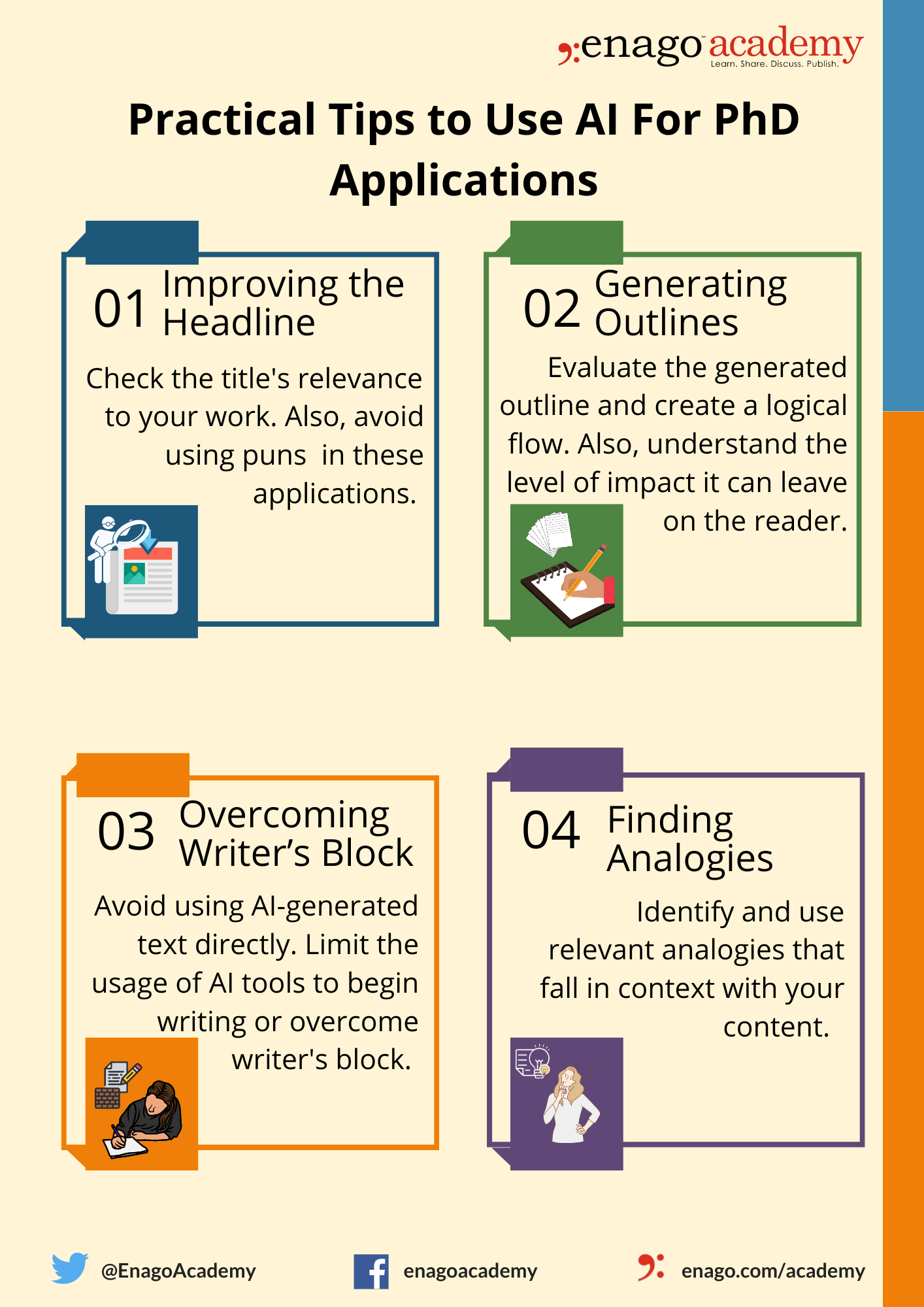
Finally, when it comes to PhD applications, ChatGPT and other AI tools should only be used as supplementary resource. Using several prompts to achieve accuracy and humanization in the AI-generated content may just be a mirage of perfection. This can never be on par with human creativity. To mitigate this, a novice can refer to the AI-generated content as a starting point. Later, they can tailor it to their needs. Striking a logical balance between artificial and human intelligence can enhance the process of drafting an impactful PhD application. This can increase your chances of acceptance to your dream program.
What do you think is the impact of AI in STM research and publishing? Share your views with the academic community on Enago Academy Open Platform.






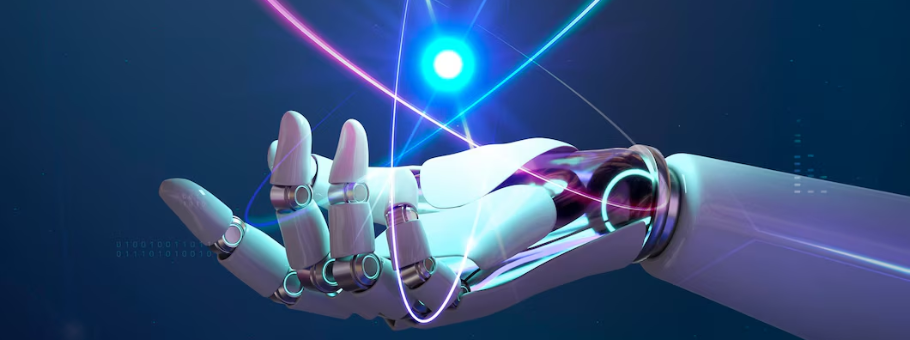
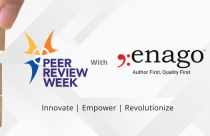
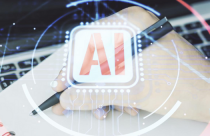

Wow, I used to think AI will make life easier, such a blog changed my mind